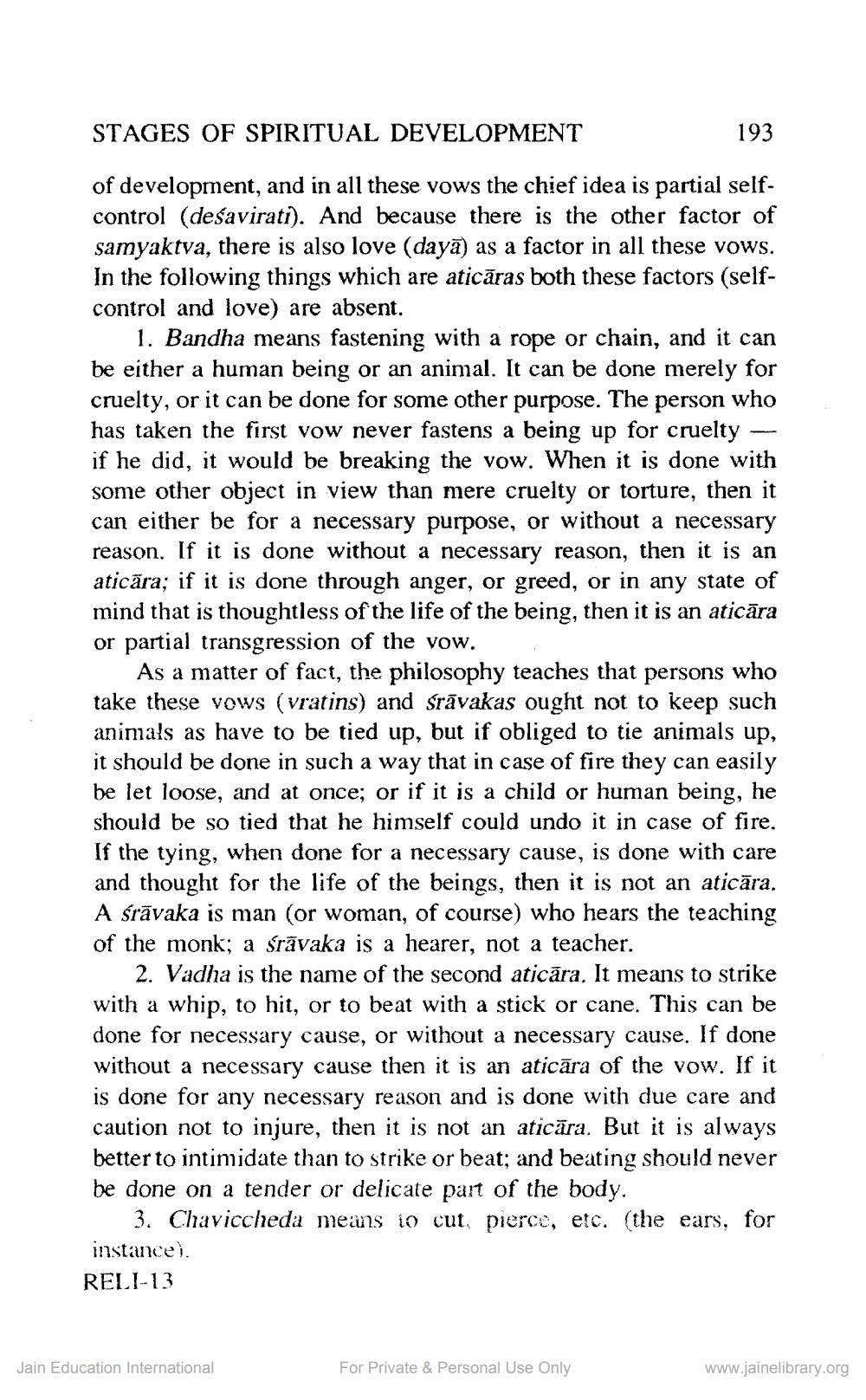________________
STAGES OF SPIRITUAL DEVELOPMENT
193
of development, and in all these vows the chief idea is partial selfcontrol (deśaviratí). And because there is the other factor of samyaktva, there is also love (dayā) as a factor in all these vows. In the following things which are aticāras both these factors (selfcontrol and love) are absent.
1. Bandha means fastening with a rope or chain, and it can be either a human being or an animal. It can be done merely for cruelty, or it can be done for some other purpose. The person who has taken the first vow never fastens a being up for cruelty — if he did, it would be breaking the vow. When it is done with some other object in view than mere cruelty or torture, then it can either be for a necessary purpose, or without a necessary reason. If it is done without a necessary reason, then it is an aticära; if it is done through anger, or greed, or in any state of mind that is thoughtless of the life of the being, then it is an aticāra or partial transgression of the vow.
As a matter of fact, the philosophy teaches that persons who take these vows (vratins) and Srāvakas ought not to keep such animals as have to be tied up, but if obliged to tie animals up, it should be done in such a way that in case of fire they can easily be let loose, and at once; or if it is a child or human being, he should be so tied that he himself could undo it in case of fire. If the tying, when done for a necessary cause, is done with care and thought for the life of the beings, then it is not an aticāra. A śrāvaka is man (or woman, of course) who hears the teaching of the monk; a srāvaka is a hearer, not a teacher.
2. Vadha is the name of the second aticāra. It means to strike ith a whip, to hit. or to beat with a stick or cane. This can be done for necessary cause, or without a necessary cause. If done without a necessary cause then it is an aticāra of the vow. If it is done for any necessary reason and is done with due care and caution not to injure, then it is not an aticāra. But it is always better to intimidate than to strike or beat; and beating should never be done on a tender or delicate part of the body.
3. Chaviccheda means to cut, pierce, etc. (the ears, for instances REL1-13
Jain Education International
For Private & Personal Use Only
www.jainelibrary.org




